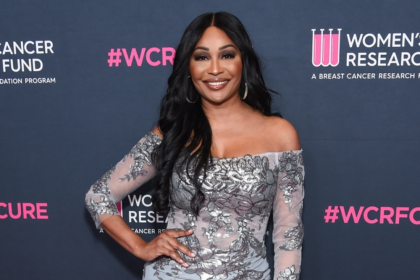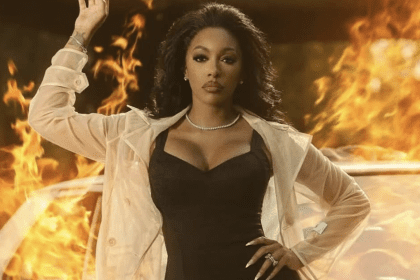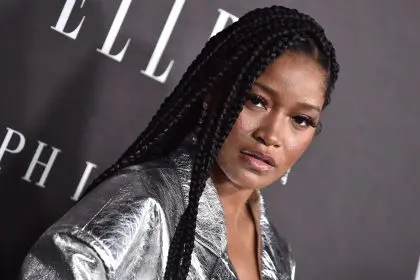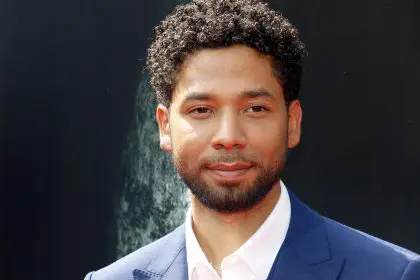The ongoing rivalry between Drew Sidora and Porsha Williams reached new intensity during the latest episode of The Real Housewives of Atlanta as their attempt at reconciliation devolved into explosive accusations involving high-profile romantic connections. The confrontation highlighted the deep-seated animosity that has developed between the two reality stars since Drew began working musically with Porsha’s former partner Dennis McKinley.
What initially appeared to be a constructive conversation between the feuding co-stars quickly deteriorated when sensitive personal topics emerged, demonstrating how unresolved tensions can escalate even during apparent peace-making efforts. The episode showcased the complex dynamics that drive reality television drama while exposing genuine interpersonal conflicts beneath the entertainment facade.
Musical collaboration sparks underlying tension
The root of the conflict between Drew and Porsha stems from Drew’s decision to collaborate musically with Dennis McKinley, Porsha’s former romantic partner. This professional relationship has created ongoing friction between the two women, as personal history and business arrangements intersect in ways that complicate their co-star dynamics.
The collaboration represents more than simple professional networking, as it involves one reality star working closely with another’s ex-partner in creative endeavors. Such arrangements often create awkward social situations and potential conflicts of interest within tight-knit reality television cast environments.
The musical partnership has become a symbol of broader loyalty questions and boundary issues that frequently arise when reality stars’ personal and professional lives overlap in complex ways that affect multiple cast relationships.
Confrontation attempt backfires dramatically
During their sit-down conversation, tensions escalated when Drew mentioned Porsha’s recent filming activities with her estranged husband Ralph Pittman. This reference to Porsha’s personal relationship situation triggered defensive responses and marked the turning point where reconciliation efforts transformed into confrontational exchanges.
The mention of Ralph Pittman appeared to touch on sensitive aspects of Porsha’s current relationship status, suggesting that certain topics remain particularly volatile between the co-stars. The reaction demonstrated how personal relationships continue influencing professional interactions within reality television environments.
The escalation pattern reflected common dynamics in reality television where attempts at resolution often expose deeper underlying issues rather than resolving surface-level conflicts, creating more dramatic content while potentially damaging real relationships.
Accusations involve high-profile romantic connections
The confrontation intensified when Porsha suggested that Drew might be romantically involved with someone referred to as Black, prompting immediate retaliation from Drew. In response, Drew accused Porsha of dating rapper Future, introducing celebrity names into their personal dispute.
These allegations involving high-profile figures added another dimension to the conflict, as claims about celebrity relationships often generate significant public interest and speculation. The mention of Future, in particular, brought additional attention to the dispute given his prominence in entertainment circles.
The exchange of accusations demonstrated how reality television conflicts often involve claims about personal relationships that extend beyond the immediate cast members, potentially affecting multiple parties who may not be directly involved in the original dispute.
Fan engagement reflects passionate investment
Social media responses to the confrontation revealed the intense engagement that reality television conflicts generate among viewers. Comments expressing support for different sides of the conflict demonstrated how audiences become emotionally invested in cast member relationships and drama.
Fan reactions included both criticism and support for each participant, with some viewers encouraging escalation while others expressed concern about the personal nature of the accusations. The passionate responses illustrated how reality television creates parasocial relationships between viewers and cast members.
The social media engagement surrounding the episode demonstrated the show’s success in creating compelling content that generates discussion and audience participation across multiple platforms beyond the television broadcast itself.
Personal relationships complicate professional dynamics
The conflict between Drew and Porsha illustrates broader challenges faced by reality television participants who must navigate personal relationships while maintaining professional obligations to create entertaining content. The intersection of genuine emotions with performance expectations creates complex situations.
Both women face the challenge of addressing real interpersonal issues while participating in a television production that benefits from dramatic conflict. This dynamic can intensify genuine disputes while making resolution more difficult due to public scrutiny and entertainment value considerations.
The situation demonstrates how reality television can complicate authentic relationship repair by incentivizing continued conflict and public confrontation rather than private resolution of personal disagreements.
Public speculation affects private matters
The accusations made during the confrontation have generated public speculation about the personal lives of both participants, potentially affecting their relationships and reputations beyond the reality television context. Claims about romantic connections, whether accurate or not, become part of public discourse.
The mention of specific individuals in romantic contexts creates situations where people not directly involved in the reality show may be drawn into the controversy and speculation. This expansion of impact beyond immediate participants reflects the broader social consequences of reality television drama.
Public speculation about the authenticity and accuracy of the accusations may continue affecting how the participants are perceived by audiences, business partners, and potential romantic interests regardless of the ultimate truth of the claims made.
Season trajectory and future implications
The confrontation sets up potential storylines for the remainder of the season, as viewers anticipate whether the conflict will escalate further or eventually reach resolution. The dramatic nature of the accusations suggests that the feud may continue developing throughout upcoming episodes.
The involvement of high-profile names and serious personal allegations creates ongoing narrative possibilities that could sustain viewer interest while potentially affecting real relationships and reputations. The balance between entertainment value and personal consequences becomes increasingly complex.
Future episodes may need to address the aftermath of the accusations while managing the ongoing tension between the participants. The show’s production team faces challenges in presenting compelling content while potentially dealing with any legal or personal complications arising from the public accusations.
Reality television dynamics and authentic rivalry
The Drew and Porsha situation exemplifies how reality tv captures genuine interpersonal conflicts while amplifying them through production techniques and audience expectations. The line between authentic emotion and performed drama becomes increasingly blurred in such contexts.
The participants must navigate between expressing genuine feelings and maintaining their roles as entertainment personalities, creating situations where real emotions may be heightened or distorted by the television format and production requirements.
The conflict demonstrates both the appeal and the potential dangers of reality television, which can provide platforms for authentic expression while simultaneously creating pressures that may damage real relationships and personal well-being.
Long-term consequences
The public nature of the accusations and conflict may have lasting effects on both Drew and Porsha’s careers and personal relationships, extending far beyond the immediate entertainment value of the episodes. Reality television conflicts often create permanent public records of personal disputes.
Professional opportunities, personal relationships, and public reputations may all be affected by how the participants handled the conflict and the specific accusations made during the confrontation. These consequences can persist long after the television season concludes.
The situation illustrates the complex calculations that reality television participants must make regarding how much of their personal lives to expose and defend in public forums, balancing entertainment career benefits against potential personal costs and relationship damage.
The explosive confrontation between Drew Sidora and Porsha Williams represents both compelling reality television content and a genuine interpersonal conflict with potentially lasting consequences for all involved parties, demonstrating the complex relationship between entertainment value and personal authenticity in modern reality television production.












